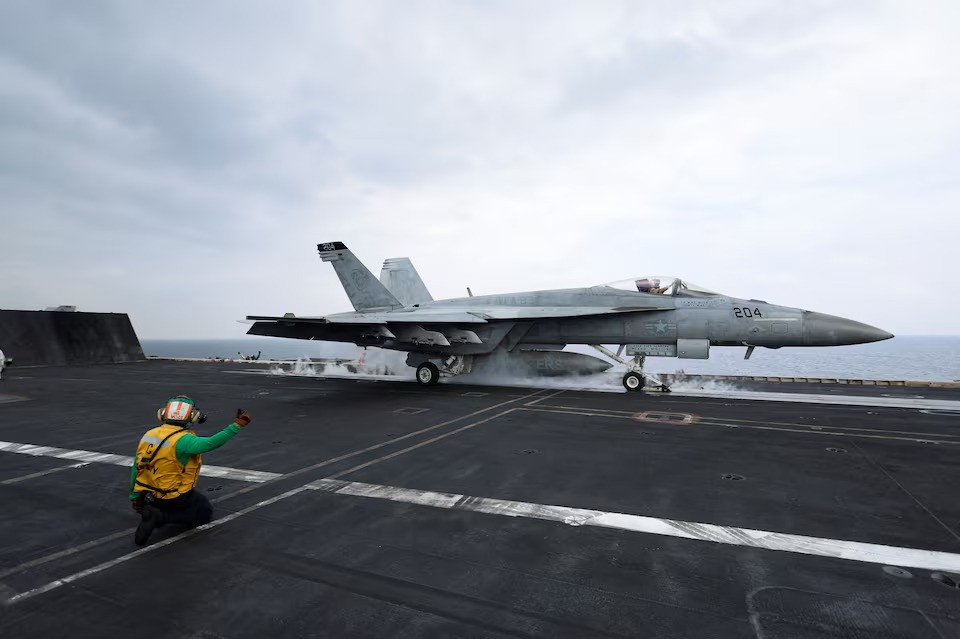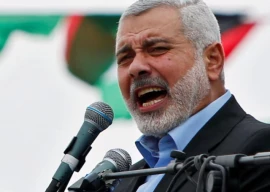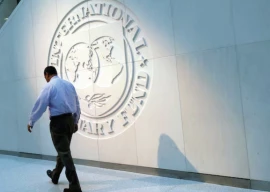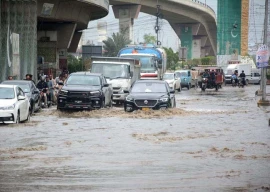
The United States military has announced plans to deploy more fighter jets and Navy warships to the Middle East. This move aims to strengthen defences against threats from Iran and its allies, Hamas and Hezbollah. The Pentagon made the announcement on Friday, highlighting the growing tensions in the region.
The US is preparing for potential retaliation from Iran following the killing of Ismail Haniyeh, a senior Hamas leader, two days ago in Tehran. This incident is part of a series of targeted killings of senior Palestinian figures amidst the ongoing conflict between Israel and Hamas in Gaza.
US Defence Secretary Lloyd Austin has approved the deployment of additional Navy cruisers and destroyers to both the Middle East and Europe. These vessels are equipped with the capability to intercept ballistic missiles. In addition, an extra squadron of fighter jets will be sent to the Middle East to enhance military presence.
According to a Pentagon statement, "Austin has ordered adjustments to US military posture designed to improve US force protection, to increase support for the defence of Israel, and to ensure the United States is prepared to respond to various contingencies."
There was speculation that the USS Theodore Roosevelt carrier strike group might not be replaced in the Middle East after completing its current deployment. However, Austin has decided to rotate in the USS Abraham Lincoln carrier strike group as a replacement.
The Pentagon also mentioned plans to increase readiness for deploying additional land-based ballistic missile defences.
The US military had already intensified deployments before April 13, when Iran launched an attack on Israeli territory using drones and missiles. However, the threat posed by Hezbollah in Lebanon presents unique challenges, given the group's extensive arsenal and proximity to Israel.
US President Joe Biden discussed new defensive military deployments to support Israel during a phone call with Israeli Prime Minister Benjamin Netanyahu on Thursday. The discussion focused on addressing threats such as missiles and drones.
Both Iran and Hamas have accused Israel of orchestrating Haniyeh's killing and have vowed to retaliate. Israel has neither confirmed nor denied responsibility for the assassination.
Haniyeh's death is one of several targeted attacks on senior Hamas figures as the conflict between Hamas and Israel approaches its 11th month. There is growing concern that the conflict could escalate further across the Middle East.
Despite the tensions, Pentagon spokesperson Sabrina Singh stated that the US does not believe escalation is inevitable. "We are being very direct in our messaging that we don't want to see heightened tensions, and we believe there is an off-ramp here: a ceasefire deal," Singh said.
In a related development, an Israeli delegation is set to travel to Cairo in the coming days to negotiate a ceasefire and a hostage release deal in Gaza, as confirmed by Prime Minister Benjamin Netanyahu's office on Friday.


1715017126-0/image-(10)1715017126-0-270x192.webp)




1722521491-0/Ryan-Reynolds-TJ-Miller-0002-(1)1722521491-0-270x192.webp)







COMMENTS
Comments are moderated and generally will be posted if they are on-topic and not abusive.
For more information, please see our Comments FAQ